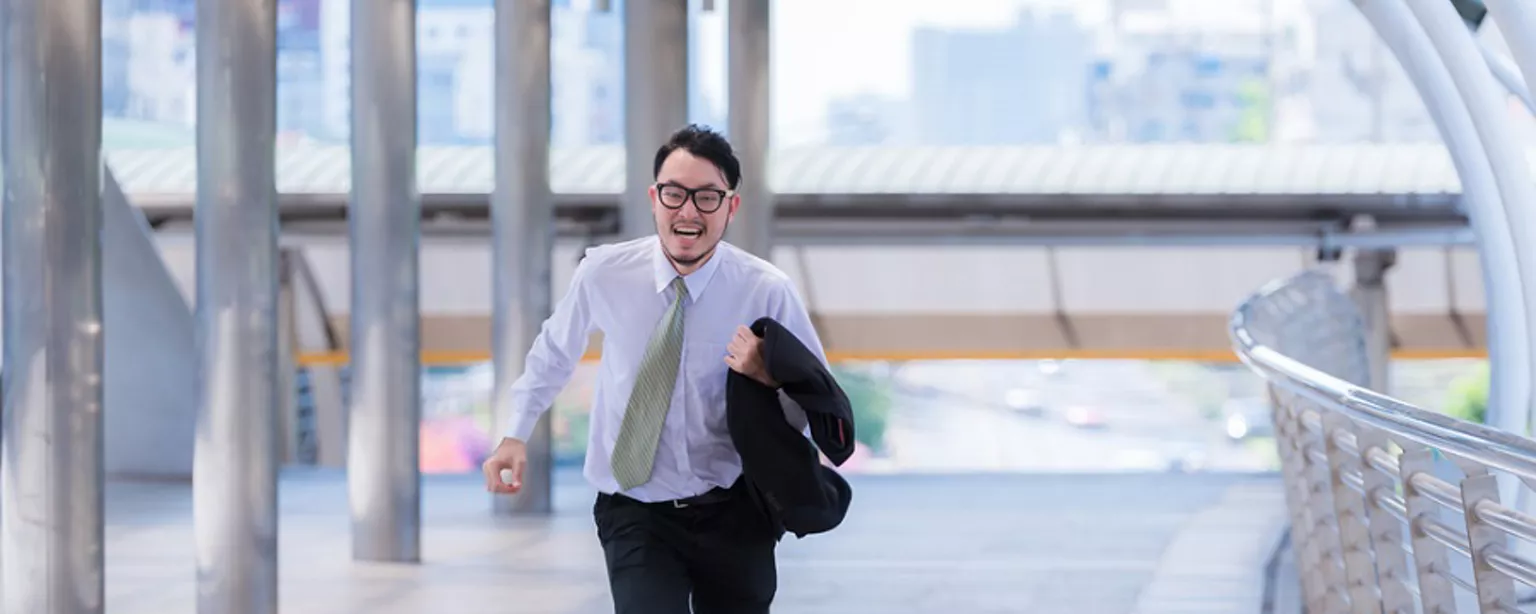Throughout each stage of the recruitment process you must display professionalism, courtesy, and respect to all those you interact and engage with.
This includes punctuality.
No matter how qualified or suitable you are for a job, if you are late to a job interview or show a lack of preparedness or lack of consideration for others, it is likely to mean the difference between receiving a job offer or having your application rejected.
It is highly recommended that you not only arrive on time for your job interview, but you arrive early; ten to fifteen minutes is suggested.
This is because the time listed for your job interview is the time your interview starts but being punctual and being available and ready for the interviewer is a way to show respect.
Turning up late to a job interview, however, can have serious consequences.
Here are four reasons why you should never be late for an interview.
1. It makes a poor first impression
Arriving late to a job interview demonstrates a lack of punctuality and time management – two critical soft skills for the workplace.
From the moment you walk into the corporate office, you need to make an impression on the company and its staff.
Arriving with an appropriate amount of time before the interview and waiting patiently will allow you to appear professional and punctual. Staff at the front desk or who see you in the interview waiting area may even comment on your behaviour to the hiring manager.
Related: Common job interview questions in Hong Kong
2. It will put you off your game
You may be feeling nervous before an interview, which is normal.
Now imagine how your nerves will be after sprinting from the cab or searching for the correct building.
If you arrive on time, those fears will be lessened, and you can focus on calming your mind and remember your preparation for the interview.
Related: Five interview techniques and skills
3. You will cause friction in the interview schedule
Another key reasons to never be late for an interview is you can cause a backlog in the interviewer’s schedule.
Your interviewer will be talking to several other people throughout the process. You want to make their job as stress-free and dealing with your interview as easy as possible.
Therefore, do not be late, be in the interview waiting area for your allocated time slot, and do not be distracted on your phone or reading when they are ready for you.
Related: Questions to ask in an interview in Hong Kong
4. You will not be able to do final checks
Arriving late to an interview means you miss out on the opportunity to do some final mental preparations before the interview.
The only downfall of being early is that you are too early. You can instead leverage this time to go over your resume and the job description.
Related: How to read body language in an interview
How to ensure you are never late to your job interview
- Map out the route you are taking to your job interview
- Allow extra time to travel to your destination
- Aim to arrive at your destination at least 15 minutes early
- Set multiple alarms to ensure you wake up on time and one for when you need to leave
What to do if you are running late for an interview
You want to avoid being late at all costs, but if something unexpected comes up, consider the following:
- Call the hiring manager or office to let them know you are running late and provide your expected arrival time
- Be ready to potentially reschedule or cancel the interview if the new timing does not work for the hiring manager
- When you arrive, take a minute to take a deep breath and compose yourself after rushing to be there
- Apologise on the phone and when you arrive before respectfully moving on
- Do not give a detailed reason for your lateness unless it’s a very good one; it should not have happened so you should not spend time drawing more attention to it
- Showcase your good manners and politeness throughout the remainder of the interview process
- Briefly apologise again in a thank you letter after your job interview







